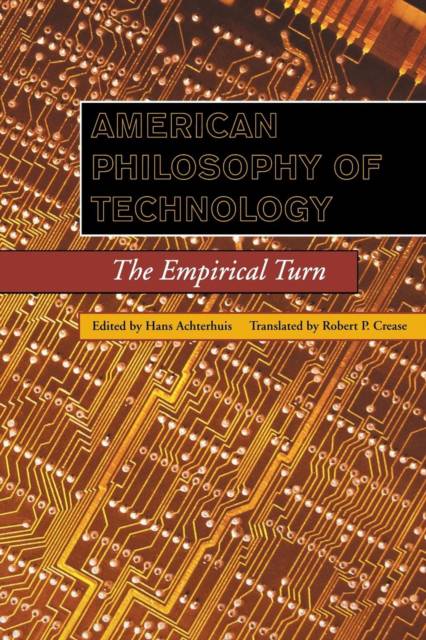
- Afhalen na 1 uur in een winkel met voorraad
- Gratis thuislevering in België vanaf € 30
- Ruim aanbod met 7 miljoen producten
- Afhalen na 1 uur in een winkel met voorraad
- Gratis thuislevering in België vanaf € 30
- Ruim aanbod met 7 miljoen producten
Omschrijving
Introduces contemporary American philosophy of technology through six of its leading figures. The six American philosophers of technology whose work is profiled in this clear and concise introduction to the field--Albert Borgmann, Hubert Dreyfus, Andrew Feenberg, Donna Haraway, Don Ihde, and Langdon Winner--represent a new, empirical direction in the philosophical study of technology that has developed mainly in North America. In place of the grand philosophical schemes of the classical generation of European philosophers of technology (including Martin Heidgger, Jacques Ellul, and Hans Jonas), the contemporary American generation addresses concrete technological practices and the co-evolution of technology and society in modern culture. Six Dutch philosophers associated with Twente University survey and critique the full scope and development of their American colleagues' work, often illustrating shifts from earlier to more recent interests. Individual chapters focus on Borgmann's engagement with technology and everyday life; Dreyfus's work on the limits of artificial intelligence; Feenberg's perspectives on the cultural and social possibilities opened by technologies; Haraway's conception of the cyborg and its attendant blurring of boundaries; Ihde's explorations of the place of technology in the lifeworld; and Winner's fascination with the moral and political implications of modern technologies. American Philosophy of Technology offers an insightful and readable introduction to this new and distinctly American philosophical turn.
Contributors are Hans Achterhuis, Philip Brey, René Munnik, Martijntje Smits, Pieter Tijmes, and Peter-Paul Verbeek.
Specificaties
Betrokkenen
- Uitgeverij:
Inhoud
- Aantal bladzijden:
- 192
- Taal:
- Engels
- Reeks:
Eigenschappen
- Productcode (EAN):
- 9780253214492
- Verschijningsdatum:
- 12/07/2001
- Uitvoering:
- Paperback
- Formaat:
- Trade paperback (VS)
- Afmetingen:
- 157 mm x 236 mm
- Gewicht:
- 312 g

Alleen bij Standaard Boekhandel
Beoordelingen
We publiceren alleen reviews die voldoen aan de voorwaarden voor reviews. Bekijk onze voorwaarden voor reviews.










